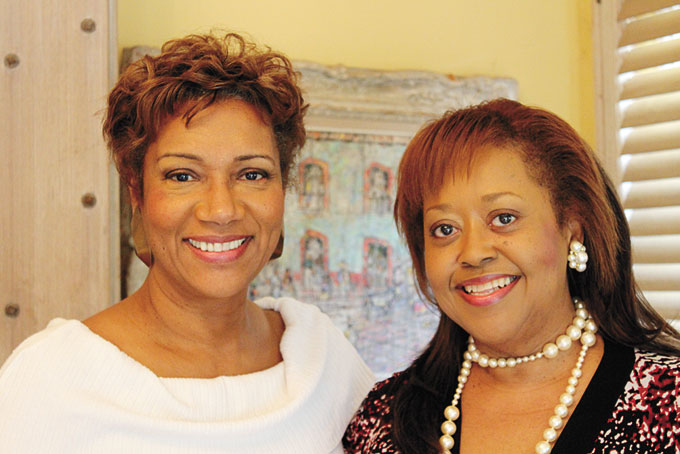
BONNIE BOSWELL WITH TENE CROOM
The accomplishments of civil rights leader Whitney M. Young Jr. have been largely forgotten. The celebrated and controversial life of Young, once executive director of the National Urban League (1961-until his death 1971), will be spotlighted in a dynamic documentary “The Powerbroker: Whitney Young’s Fight for Civil Rights.” The documentary premiered on Independent Lens on PBS in February and is being carried nationally on PBS stations. Contact your local station for time and dates.
“It shows the complexities and subtleties of how the whole movement was able to move forward. The fact that you didn’t have just one voice at the table, but you had many voices and different voices. And there’s an appreciation for different people’s roles in that movement.” Bonnie Boswell, executive producer and niece of Young said, in an exclusive interview, about the special.
Young was among a cadre of civil rights leaders in the 1960’s including Rev. Martin Luther King Jr., Roy Wilkins and Thurgood Marshall (later become first Black U.S. Supreme Court justice). In the documentary Vernon Jordan, the next head of the National Urban League after Young, explained, “Whitney understood power and he understood politics and most of all he understood people. They said Martin was in the streets and Roy and Thurgood was in the courts and Whitney was in the boardroom. One could not have been successful without the other.”
He spearheaded a bold approach to ending poverty and other social ailments in the nation’s cities, calling it a domestic “Marshall Plan.” The idea to spend $145 billion over 10 years was weaved into President Lyndon B. Johnson’s War on Poverty.
Young often met with the President and would forge a close friendship with Johnson. The President recognized his accomplishments. In 1968 Johnson bestowed upon Young the Medal of Freedom, the nation’s highest civilian award.
His ability to broker with White conservative politicians and businessmen raised the ire of some in the Black community, like Congressman Adam Clayton Powell, Jr. “Whitey Young, I mean Whitney Young, is the Wall Street of the civil rights movement.” Powell once flippantly declared.
A so-called “Black revolutionary plot” to kill him was foiled. Herman B. Furguson and Arthur Harris were convicted in New York of conspiring to murder Young and Roy Wilkins because of their hatred of people they called “Uncle Toms” or persons who they thought were not militant enough for the Black Power cause.
Young, married with two daughters, was a mover and shaker in the civil rights movement, using his charm to cajole often times reluctant Whites in board rooms at corporations to provide economic equity to Blacks in the turbulent 1960’s. Perhaps his self-assuredness was due to his upbringing. Born in Lincoln Ridge, Ky, in 1921 he was the son of the president of Lincoln Institute, an elite Black boarding school. He would later earn a Bachelor of Science degree from Kentucky State University.
His niece recalls family members talking about his early years. “I remember my mom talking quite a bit about the fact that he was always going to the doctor, seemed like every month, because he was breaking something, an arm, a leg, or something like that. My mom was his older sister and then there was Uncle Whitney and then there was a younger sister. And the two younger kids always played. They were up on the trees. I remember Aunt Eleanor telling the story about Uncle Whitney and she had climbed up to the very, very, very top outside of their house and my grandmother came home and just saw the two of them swaying up there. It was just absolutely hysterical.” Boswell said with a laugh.
What Young wanted for Black Americans was what every American wanted. “There needs to be a floor beneath which no human being should fall in this country,” he once stated.
The 49-year-old Young met an untimely death on March 11, 1971, suffering a heart attack, while swimming in surf in Lagos, Nigeria. As the country mourned President Richard Nixon released a touching statement, “With Whitney Young’s tragic death today in Nigeria, I have lost a friend-Black America has lost a gifted and commanding champion of its just cause—and this Nation has lost one of the most compassionate and principled leaders it has had in all.” Nixon wrote.
“The Powerbroker” is one of several documentaries featured on PBS during Black History Month. For more details go to pbs.org./black-culture.
(Reach Tene’ Croom at tene.croom.tc@gmail.com.)